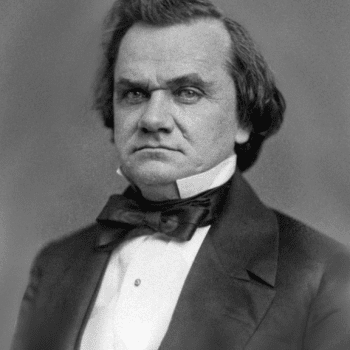 Michael Wear is a pro-life evangelical Christian who was a staffer for Barack Obama, helping him reach faith groups in 2012. He is now criticizing his fellow Democrats for writing off Christians.
Michael Wear is a pro-life evangelical Christian who was a staffer for Barack Obama, helping him reach faith groups in 2012. He is now criticizing his fellow Democrats for writing off Christians.
Emma Green, writing in the Atlantic, interviews him about his new book on the subject and about why the Democratic party as a whole has become so antagonistic to religious people, something that did not used to be the case and something that will continue to limit the party’s prospects in this still very religious nation.
From Emily Green, Democrats’ Religion Problem – The Atlantic:
Emma Green: Many people have noted that 81 percent of white evangelicals voted for Donald Trump in this election. Why do you think that was?
Michael Wear: It shows not just ineptitude, but the ignorance of Democrats in not even pretending to give these voters a reason to vote for them. We also need to have a robust conversation about the support or allowance for racism, misogyny, and Islamophobia in the evangelical tradition.
Many of those 81 percent are accommodating cultural changes in America that are deeply problematic. Liberals have been trying to convince Americans, and evangelicals in particular, that America is not a Christian nation. The 2016 election was evangelicals saying, “Yeah, you’re right! We can’t expect to have someone who is Christian like us. We can’t expect to have someone with a perfect family life. What we can expect is someone who can look out for us, just like every other group in this country is looking for a candidate who will look out for them.”
There’s a lot of conversation in Christian circles about Jeremiah 29, which is Jeremiah’s letter to the exiles in Babylon. The message Jeremiah had, and that the Lord had, for the exiles is that they should seek the peace and prosperity of the city where they’ve been planted, and multiply—they should maintain their convictions for the flourishing of others. The concern I have, and that many others have, is that in this time of cultural transformation in America, you’re going to have many evangelicals who just become Babylonians. . . .
Green: One could argue that among most Democratic leaders, there’s a lack of willingness to engage with the question of abortion on moral terms. Even Tim Kaine, for example—a guy who, by all accounts, deeply cares about his Catholic faith, and has talked about his personal discomfort with abortion—fell into line.How would you characterize Democrats’ willingness to engage with the moral question of abortion, and why is it that way?Wear: There were a lot of things that were surprising about Hillary’s answer [to a question about abortion] in the third debate. She didn’t advance moral reservations she had in the past about abortion. She also made the exact kind of positive moral argument for abortion that women’s groups—who have been calling on people to tell their abortion stories—had been demanding.The Democratic Party used to welcome people who didn’t support abortion into the party. We are now so far from that, it’s insane. This debate, for both sides, is not just about the abortion rate; it’s not just about the legality of it. It’s a symbolic debate. It’s symbolic on the pro-choice side about the autonomy of women and their freedom to do what they want with their bodies. On the pro-life side, they care not just about the regulations around abortion, but whether there’s a cultural affirmation of life.Even the symbolic olive branches have become less acceptable.Green: If you were talking to a secular Democrat who is skeptical about the need to do outreach to conservative evangelicals or make a compromise on language surrounding social issues like abortion, same-sex marriage, etc., what would you say? Wear: It’s sad that this is a throwaway response, but it’s the duty of statesmanship. It’s the duty of living in a pluralistic society to make a case to all folks.
The second would be that America is still a profoundly religious nation. There are reports that high-level Democratic leadership was not interested in reaching out to white Catholics. And they sure didn’t have a lot of interest in white evangelicals. That’s a huge portion of the electorate to throw out. So if the civic motivation doesn’t get you, let me make the practical argument: It doesn’t help you win elections if you’re openly disdainful toward the driving force in many Americans’ lives.
The Democratic Party is effectively broken up into three even thirds right now: religiously unaffiliated people, white Christians who are cultural Christians, and then people of color who are religious.
Now read David French on why the Democrats won’t solve their religious problem.
Caricature by Donkey Hotey, “Democratic Donkey, Full Dress Uniform,” Creative Commons License
















